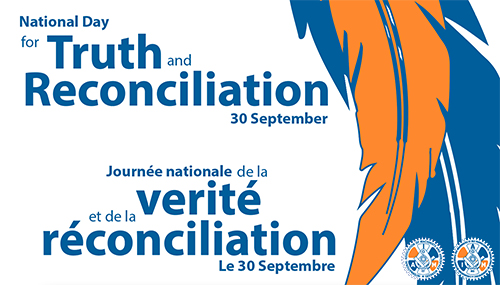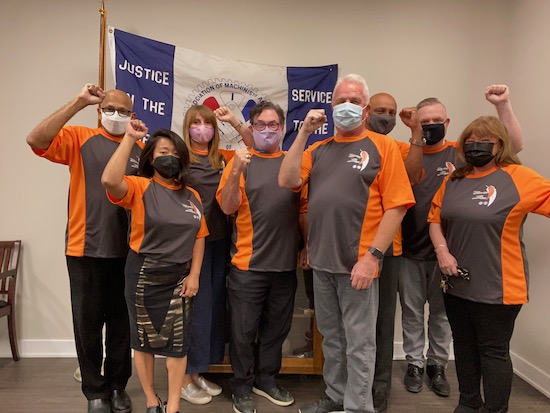
September 30, 2024 marks the 4th first National Day for Truth and Reconciliation.
The day honours the lost children and Survivors of residential schools, their families and communities. Public commemoration of the tragic and painful history and ongoing impacts of residential schools is a vital component of the reconciliation process.
The creation of this federal statutory holiday was through legislative amendments made by Parliament. On June 3, 2021, Bill C-5, An Act to amend the Bills of Exchange Act, the Interpretation Act and the Canada Labour Code (National Day for Truth and Reconciliation) received Royal Assent.
Wear orange

Both the National Day for Truth and Reconciliation and Orange Shirt Day take place on September 30.
Orange Shirt Day is an Indigenous-led grassroots commemorative day that honours the children who survived residential schools and remembers those who did not. This day relates to the experience of Phyllis Webstad, a Northern Secwepemc (Shuswap) from the Stswecem’c Xgat’tem First Nation, on her first day of school, where she arrived dressed in a new orange shirt, which was taken from her. It is now a symbol of the stripping away of culture, freedom and self-esteem experienced by Indigenous children over generations.
On September 30, we encourage all Canadians to wear orange to raise awareness of the very tragic legacy of residential schools, and to honour the thousands of Survivors.
Commemorating National Day for Truth and Reconciliation
Illuminating Parliament Hill
To commemorate the National Day for Truth and Reconciliation and to honour the Survivors, their families and communities, buildings across Canada will be illuminated in orange September 29 and/or September 30, from 7:00 pm to sunrise the next morning. This will include federal buildings such as the Peace Tower on Parliament Hill.
Mental health supports available
Former residential school students can call 1-866-925-4419 for emotional crisis referral services and information on other health supports from the Government of Canada. Indigenous peoples across Canada can also go to The Hope for Wellness Help Line 24 hours a day, 7 days a week for counselling and crisis intervention. Call the toll-free Help Line at 1-855-242-3310 or connect to the online chat.
Truth and Reconciliation Commission and its calls to action
There were 140 federally-run Indian Residential Schools which operated in Canada between 1831 and 1998. The last school closed only 23 years ago. Survivors advocated for recognition and reparations and demanded accountability for the lasting legacy of harms caused. These efforts culminated in:
- the Indian Residential Schools Settlement Agreement
- apologies by the government
- the establishment of the Truth and Reconciliation Commission
- the creation of the National Centre for Truth and Reconciliation
The Truth and Reconciliation Commission ran from 2008 to 2015 and provided those directly or indirectly affected by the legacy of the Indian Residential Schools policy with an opportunity to share their stories and experiences. The National Centre for Truth and Reconciliation has become the permanent archive for the statements, documents and other materials the Commission gathered, and its library and collections are the foundation for ongoing learning and research.
The Commission released its final report detailing 94 calls to action. The National Day for Truth and Reconciliation is a direct response to Call to Action 80, which called for a federal statutory day of commemoration.
To learn more
This National Day for Truth and Reconciliation, explore the rich and diverse cultures, voices, experiences and stories of the First Nations, Inuit, and Métis peoples. Whether you want to read, listen, watch, or try, start your learning journey today.
#NDTR
frank 30 September, 2021
SOURCE Posted in Human Rights, Machinists’ News
